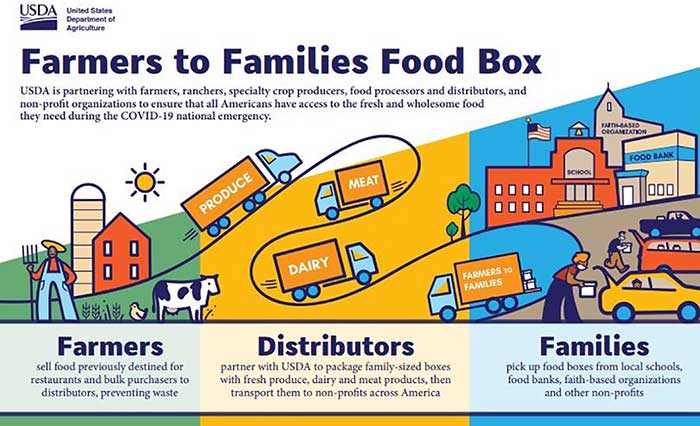By: Shannan Young, RDN, SNS
.jpg?sfvrsn=af50bebd_6)
School meals have always been a critical access point for the nutritious foods that children need to grow and learn. School meals help ensure children, especially families living at or below the poverty line, are able eat. These meals are especially important now as economic hardships are exacerbated due to the COVID-19 pandemic, increasing food insecurity concerns for many families. Before the pandemic, 35 million people in the United States lived in food-insecure households. When combined with the millions more who now lack access to food for the first time, the nation is experiencing a rate of food insecurity not seen in over a decade1.
Research shows that mental health outcomes in children and teens are influenced by food insecurity. Having limited or uncertain access to food negatively affects the social, emotional and behavioral development of children and adolescents, which also impedes their ability to learn. Additionally, food insecurity may inhibit a student’s social skills development and increase their risk for additional mental health challenges. Specifically, food insecurity impairs a child’s ability to develop interpersonal relationships, maintain self-control and invite opportunities to learn. Food insecurity is also strongly correlated with higher levels of anxiety and irritability in children2.
School Nutrition Programs Are Serving Free Meals
Many complex factors affect mental health. Stressors like the pandemic add emotional strain as well as stress caused by food insecurity. Participating in school meal programs during these critical times is one way families can feed their children to offset the challenges they are experiencing. As reported in the Journal of Nutrition, “The severity of household food insecurity is positively associated with mental disorders among both children and adolescents in the US. These results suggest that improving household food security status has the potential to reduce mental disorders among US youth.”6 Access to such a critical program allows families to feed their children, reducing added stress and supporting mental health.
COVID-19 has impacted the school nutrition environment tremendously, and school nutrition program staff across the nation are working hard to make sure all students have continued access to safe and healthy school meals whether they are attending class in-person or via distance learning. As a result of current U.S. Department of Agriculture program waivers, school meals are being offered to all children (18 years and under) at no cost regardless of household income for the remainder of the 2020–2021 school-year3. In addition to reducing food insecurity and stretching the budget, school meals are healthy and designed to meet federal nutrition standards. Studies show that students who participate in school meal programs consume more milk, whole grains, fruits, and vegetables during mealtimes, resulting in better overall diet quality than students who don’t participate in the meal programs4.
Unfortunately, school meal participation rates are down across the nation. This is a concern because federal nutrition programs are designed to reduce food insecurity among school-aged children and adolescents, which is at a critical all-time high. Participating in school meal programs helps families and schools, as increased participation means more children are able to access healthy foods while helping schools keep their much-needed funding5. The familiarity of seeing school nutrition professionals also provide children and families with comfort, giving them a sense of routine as they pick up meals.
During these difficult times, supporting the mental health of children and families by providing them with food security through federal nutrition programs is more important than ever. By supporting school meal programs, students are able to access the nutritious foods they need to live, learn and thrive. For more information about food access programs, visit www.healthyeating.org/foodaccess .
Supporting the health and well-being of students now and beyond the pandemic will require a community effort. We invite passionate individuals to join the Let’s Eat Healthy movement to empower healthier communities through nutrition. For more information about how to join the movement, visit www.healthyeating.org/join.

Shannan Young, RDN, SNS
Shannan Young, RDN, SNS
Shannan is the Partnerships and Programs Program Officer with over 20 years of experience as a registered dietitian nutritionist.
As the COVID-19 pandemic continues to impact industries + families, schools are innovating how they provide meals to students.

The National School Lunch Program has played an important role in nourishing students across the U.S. by providing little to no cost meals daily.

Subscribe to our blog to stay up to date on the latest news, products, and more.